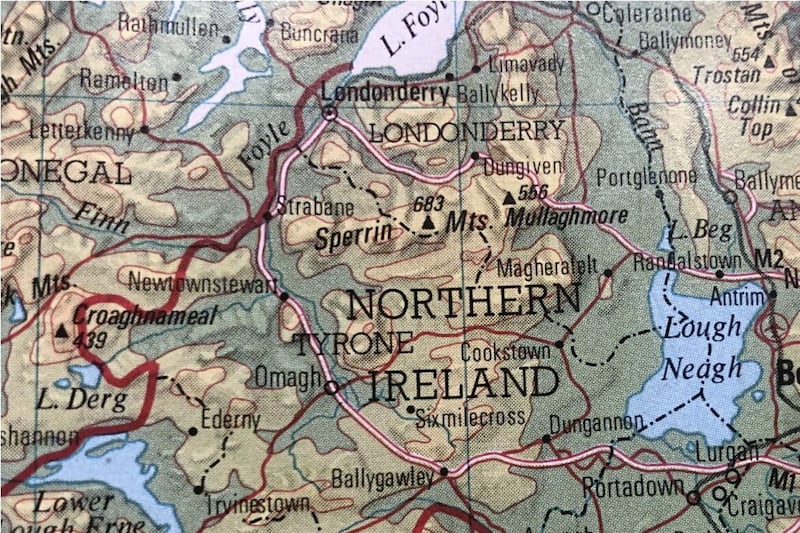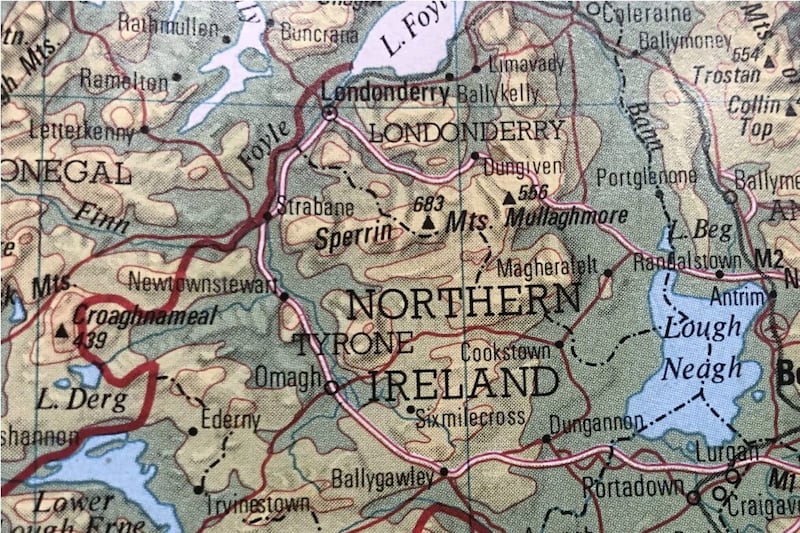ON April 7 1922, the Civil Authorities of Northern Ireland (Special Powers) Bill, on receiving the royal assent, became an act. This draconian piece of legislation which introduced courts martial, internment, flogging and executions was renewed annually until 1928, for five years until 1933, and thereafter made permanent, surviving for the remainder of the Stormont regime into the 1970s.
While initially introduced to restore order, it soon morphed into a mechanism to prevent dissent from nationalists, a means to subjugate the entire minority community of Northern Ireland.
When security powers were transferred to the northern government in November 1921, the minister for home affairs Richard Dawson Bates advised the northern cabinet the following month that an act, similar to the Restoration of Order in Ireland Act (ROIA) enacted by the British in Ireland in August 1920, should be introduced in Northern Ireland to be carried out by the policing instead of the military authorities.
Dawson Bates was known as being particularly antagonistic towards Catholics, regarding them as potential if not all actual traitors. The cabinet agreed not to bring in such legislation then but to do so when an emergency arose.
With the civil unrest engulfing the north from the start of 1922, the cabinet agreed circumstances warranted such legislation, and introduced it under the guise of the Special Powers Act which became law in April.
The new act gave Dawson Bates sweeping powers. It provided for the death penalty, flogging, arrest without warrant and the prohibition of inquests. It also permitted Dawson Bates "to make further regulations - each with the force of a new law - without consulting Parliament, and to delegate his powers to any policeman".
George Hanna, a unionist MP, believed the bill was too complicated, saying there were "nine sections of the bill and thirty regulations. One section would have been sufficient: The Home Secretary shall have the power to do whatever he likes, or let somebody else do whatever he likes for him. That is the whole Bill".
While unionists saw the act as a means to stem the violence and secure the border, nationalists saw the measure in a wholly negative light, with it being quickly dubbed the 'Flogging Bill' by the nationalist press, in light of one of its most humiliating punishments.
Dublin-based the Evening Herald claimed the Act "was passed to torture and degrade Irishmen who are brave enough to dare to fight against an intolerable tyranny which deprives them of the elementary right to live" and gave details of convictions handed to people like 16-year-old Patrick Boyle who was sentenced to "fifteen strokes of the 'cat' and three years' penal servitude" for attacking a police barracks; Walter Cullen also sentenced to 15 strokes of the 'cat' and seven years' penal servitude for holding up a doctor and having a revolver and bomb in his possession; and Felix Boyle sentenced again to 15 strokes of the 'cat' and seven years' penal servitude for having arms and ammunition on his farm.
West Belfast nationalist MP Joseph Devlin spelt out the predicament the nationalist community was faced with: "If Catholics have no revolvers they are murdered. It they have revolvers they are flogged and sentenced to death."
Chairperson of the Free State provisional government Michael Collins complained bitterly to Winston Churchill about the Special Powers Act, saying it gave "virtually unlimited" coercive powers to Dawson Bates, "notorious for his antipathy to our people".
He warned that "the situation in the six counties could not be graver, if these offensive, not protective measures are taken against our people... I cannot be responsible for the awful consequences which must ensure".
While the Specials Powers Act became law in April 1922, the full brunt of its measures was not felt until the following month, after the assassination of an Ulster Unionist MP, W.J. Twaddell on May 22. Twaddell was shot dead on the way to his outfitter's shop.
After his death, the northern government ordered the round-up of some 500 Sinn Féin sympathisers. Many of them were interned on board the Argenta, a converted cargo vessel transformed to a prison ship, moored firstly in Belfast Lough, then later in Larne Bay. Two other internment camps were established in Derry Gaol and Larne Workhouse.
Charles Wickham, who became the first commissioner of the newly established Royal Ulster Constabulary in 1922, declared, "in Belfast the spectacle of the floating internment palace in Belfast Lough before their vision acts as a warning to Sinn Féiners to curb their enthusiasm for their evil activities".
Father John Hassan, curate of St Mary's parish in Belfast city centre, graphically described the conditions for its hundreds of prisoners: "This floating house of filth and misery is called by the splendid name of the Argenta. Probably nothing so vile could be found, even in Turkey, at the present day.
"The unfortunate prisoners are huddled together in sections of forty like cattle in a pen. The food is execrable, and has to be eaten off the floor. The lavatory accommodations consist of a few buckets placed openly at the end of the apartment.
"The men were confined to improvised communal cages below decks with mail, supplies and visitors arriving on the ship by boat."
When the IRA in Belfast undertook an arson campaign in the city in June 1922, the response from the authorities was ferocious. Leading IRA member in Belfast Seamus Woods reported: "The enemy are continually raiding and arresting; the heavy sentences and particularly the flogging making the civilians very loath to keep wanted men or arms."
While the start of the civil war in the south was a causal factor in the retreating of the IRA in the north, the wholescale enforcement of the Special Powers Act on the nationalist community also contributed to a decline in IRA activity. Nationalists complained bitterly that the measurements were being unfairly applied to nationalists, with few loyalists ever punished for the widespread violence they committed against Catholic civilians.
Nationalist outrage only increased thereafter as the Special Powers legislation retained indefinitely was levied almost exclusively on the minority population throughout the subsequent decades, a key grievance of the civil rights movement that came to the fore in the 1960s.
The vast majority of the 90 meetings, assemblies and processions banned by the ministry of home affairs from 1922 to 1950 were republican or anti-partitionist in nature, with a particular emphasis placed on banning events around Easter Week each year. Of the 140 publications banned, the vast majority again were republican titles such as An Phoblacht, Sinn Féin, Poblachta na h'Éireann, Éire and the Irish Nation. The others were largely socialist or communist in character.
Of the 11 proscribed organisations, nine were republican in their orientation. The northern government even issued a regulation in 1933 specifically prohibiting the Irish tricolour from being displayed.
Such draconian measures as introduced through the Special Powers Act were not unique to Northern Ireland. In many ways they were a continuance of the ROIA introduced by the British into Ireland in 1920, and were similar to the Emergency Powers used by the Free State government in the civil war in the south in September 1922.
While the latter two lapsed, the northern government retained the Special Powers Act for its 50-year duration as its legal mechanism and excuse to break all nationalist dissent and essentially deny basic freedoms of speech and assembly to the entire Catholic minority community in the north.
This oppressive legislation affected the entire nationalist community for 50 years, establishing a deep sense of injustice that built up over decades.
Cormac Moore is author of Birth of the Border: The Impact of Partition in Ireland (Merrion Press, 2019).








